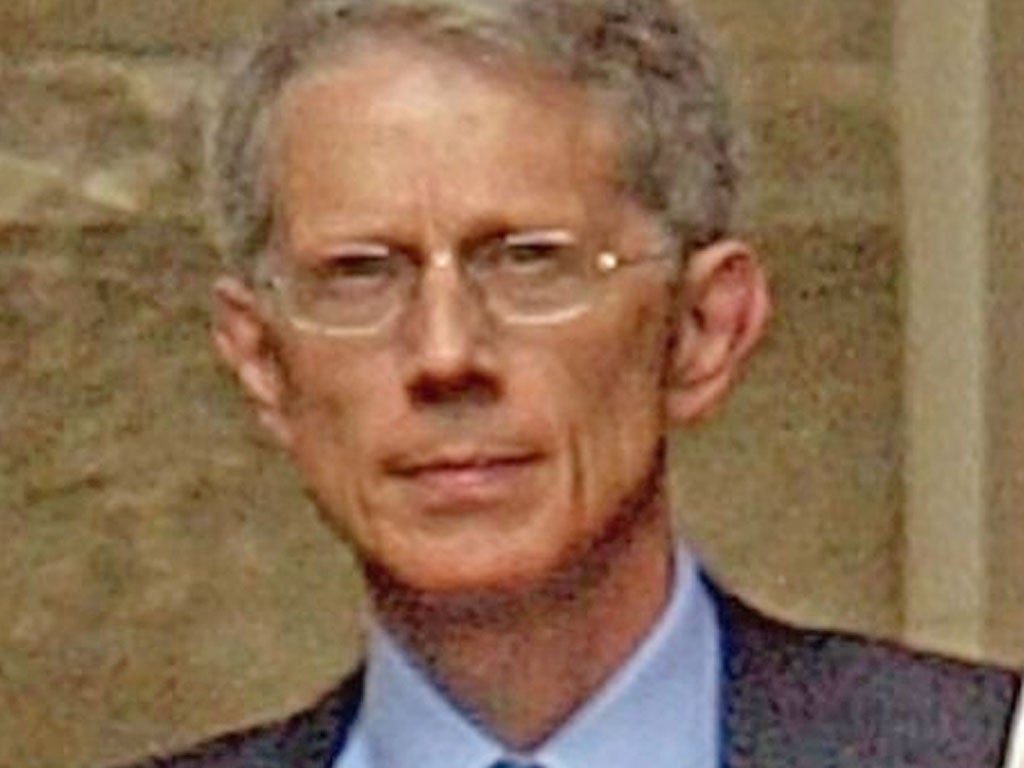Ambassador held official talks with US defence firm he later joined
Disclosure renews concerns about 'revolving door' between public servants and business

Sir David Manning, the former UK Ambassador to Washington and a foreign affairs adviser to Tony Blair, met with senior executives at Lockheed Martin and gave advice on the handling of contracts affecting the company before taking a paid role with the defence giant.
Documents released under a Freedom of Information request disclose the contacts Sir David had with the multinational arms manufacturer before he left the diplomatic service and became a non-executive director of the UK wing of Lockheed Martin.
The documents, which were released only after pressure from the Information Commissioner, will raise further concerns about the "revolving door" involving defence companies and senior figures from the public sector.
Sir David, 62, was a leading Foreign Office mandarin who played a key role in the discussions between Mr Blairm, below, and President George Bush which led to Britain's decision to join the invasion of Iraq in 2003. After the invasion he became the UK Ambassador to Washington, a post he held until 2007.
A year later he joined the board of Lockheed Martin UK as a non-executive director, after quitting the diplomatic service. The appointment was approved by Acoba, the advisory committee on business appointments, whose rules require a two-year breathing space before former civil servants can take up private sector jobs lobbying ministers.
Sir David denied that he had any official contacts with Lockheed Martin, which makes jet fighters and missiles, in the period before he left Washington.
Acoba initially attempted to block efforts to disclose Sir David's full answers to questions about his relationship with the defence industry while he was Ambassador. His contacts with Lockheed Martin figures have now been revealed after the Information Commissioner instructed Acoba to answer a series of FoI requests.
The Independent can disclose that Sir David admitted he gave "political advice" to ministers and the MoD "on the handling of the Joint Strike Fighter contract with Lockheed Martin (US)". He wrote: "This was not about contracts as such but how to sustain and manage JSF deal in our contracts with Bush administration, Congress and Lockheed (US)." He said he had "the occasional face to face dealings and telephone conversations with representatives of the Lockheed Martin Corporation" while he was Ambassador. These discussions were "to try to ensure that British companies were given every opportunity to participate equitably with Lockheed Martin in developing the Joint Strike Fighter."
Lockheed Martin was among the companies that sponsored dinners marking Sir David's arrival and departure from Washington, organised by the British-American Business Association, a body chaired by Don Neese, Lockheed's former director of Western Europe.
Sir David said he had "no official dealings with Lockheed Martin and had no involvement in any decisions affecting Lockheed Martin" during his final two years in Washington.
Acoba said Sir David had "asked to make it clear that there is a distinction between his dealings with the Lockheed Martin Corporation while he was British Ambassador in the US, and the non-executive and advisory role that he took on in 2008 after he retired from the Diplomatic Service."
Sir David also disclosed to Acoba contacts he had had with "senior members" of BAE Systems and Boeing, to discuss "business and political conditions in the US".
The contacts were revealed by Heydon Prowse, a journalist notorious for pranking politicians on the BBC series The Revolution Will Be Televised, who pursued a number of FoI requests. Prowse said: "Acoba is completely ineffective and powerless to fulfil its remit. All they are obliged to do is send departing Crown Servants a document where they tick Yes or No, promising they're nice chaps and not going to get involved in any corrupt behaviour."
A spokesman for Lockheed Martin UK said: "This is a company which adheres to the highest standards of business conduct globally... Sir David Manning adhered to all UK government and company requirements regarding potential conflicts of interest before joining Lockheed Martin UK as a non-executive director and any allegations to the contrary are entirely without foundation." Figures show that senior military officers and Ministry of Defence officials have taken up more than 3,500 jobs at arms companies over the past 16 years.
Timeline: Sir David Manning
1972 Enters Foreign and Commonwealth Office
1995-1998 Tel Aviv, Israel (ambassador)
2001-2003 Foreign policy adviser to Prime Minister. Advises Tony Blair on preparations for invasion of Iraq, attends meetings with President Bush (pictured with Manning and Condoleeza Rice). Pushes for BAE Systems to win contracts for Lockheed Martin-produced Joint Strike Fighter jet project.
2004-2007 Washington, USA (ambassador). Attends welcoming dinner organised by British-American Business Association, which includes Lockheed Martin executives on its board. Holds face-to-face dealings and telephone conversations with representatives of Lockheed Martin. Gives "political advice" to ministers and the MoD "on the handling of the Joint Strike Fighter contract with Lockheed Martin (US)".
2008 Joins Lockheed Martin UK as non-executive director and the advisory board of Hakluyt, a private intelligence firm partly staffed by former MI6 officers.
Join our commenting forum
Join thought-provoking conversations, follow other Independent readers and see their replies
Comments
Bookmark popover
Removed from bookmarks